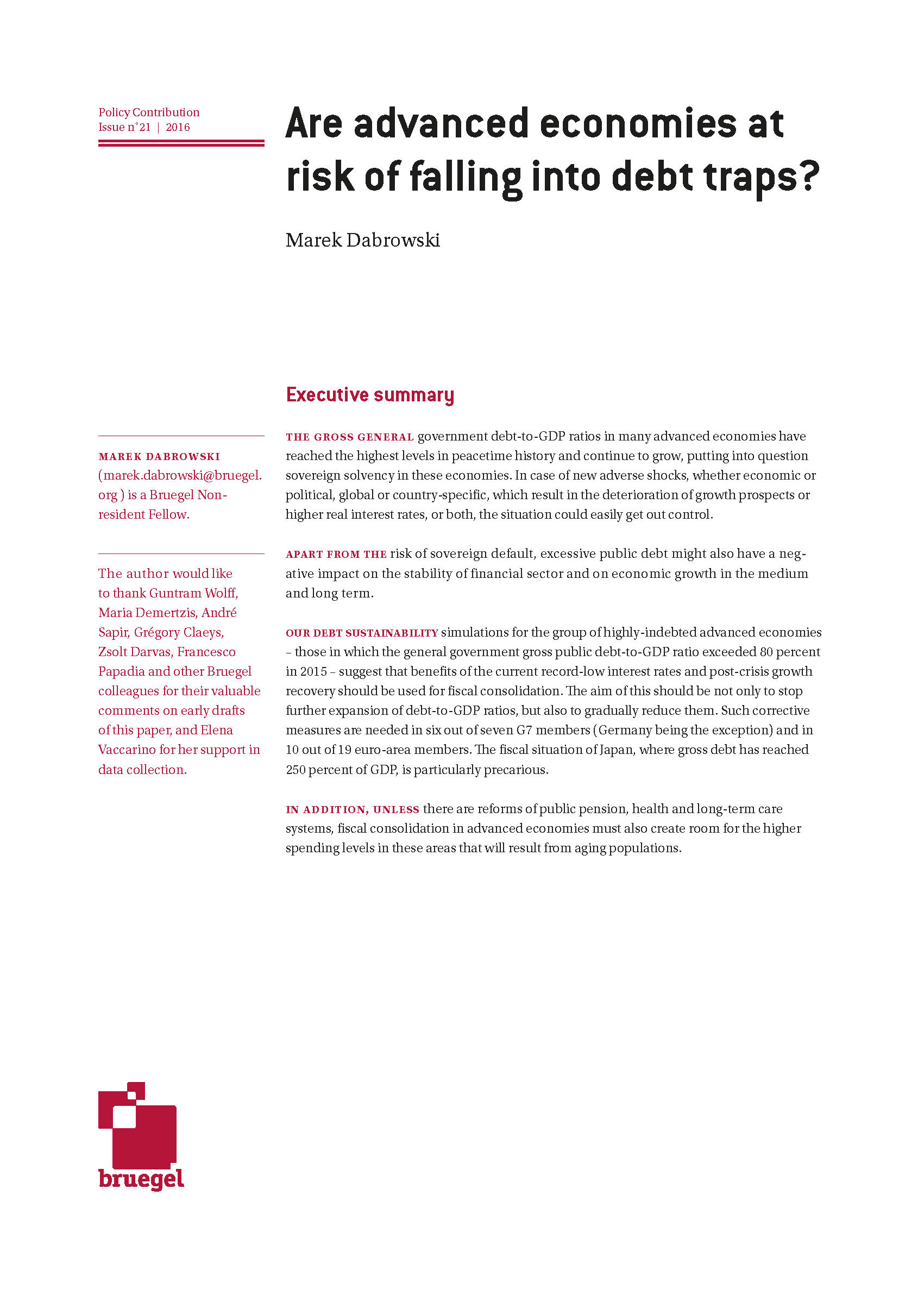Policy Contribution
Are advanced economies at risk of falling into debt traps?
One of the consequences of the global financial crisis has been rapid growth in public debt in most advanced economies. This Policy Contribution assesses the size of public debt in advanced economies and considers the potential consequences of sovereign insolvency.
The gross general government debt-to-GDP ratios in many advanced economies have reached the highest levels in peacetime history and continue to grow, putting into question sovereign solvency in these economies.
In case of new adverse shocks, whether economic or political, global or country-specific, which result in the deterioration of growth prospects or higher real interest rates, or both, the situation could easily get out control.
Apart from the risk of sovereign default, excessive public debt might also have a negative impact on the stability of financial sector and on economic growth in the medium and long term.
Debt sustainability simulations for the group of highly-indebted advanced economies – those in which the general government gross public debt-to-GDP ratio exceeded 80 percent in 2015 – suggest that benefits of the current record-low interest rates and post-crisis growth recovery should be used for fiscal consolidation.
The aim of this should be not only to stop further expansion of debt-to-GDP ratios, but also to gradually reduce them. Such corrective measures are needed in six out of seven G7 members (Germany being the exception) and in 10 out of 19 euro-area members. The fiscal situation of Japan, where gross debt has reached 250 percent of GDP, is particularly precarious.
In addition, unless there are reforms of public pension, health and long-term care systems, fiscal consolidation in advanced economies must also create room for the higher spending levels in these areas that will result from aging populations.









